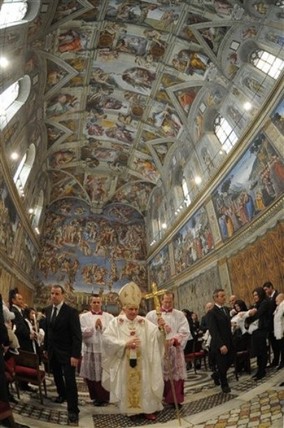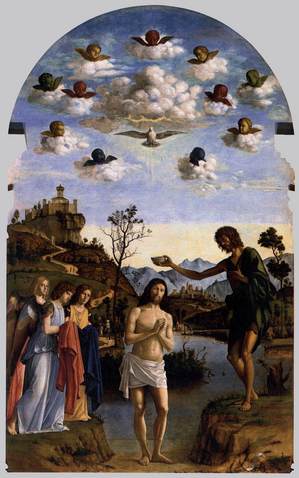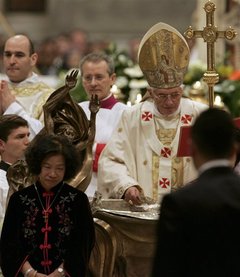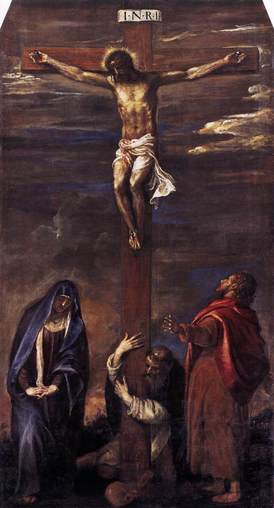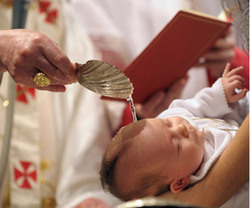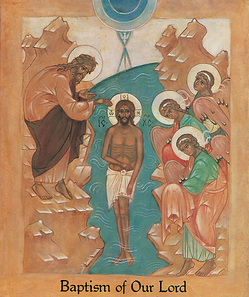The papal
tradition of baptizing infants has been in place for some time. In addition to
baptizing converts at the Easter Vigil, Pope John Paul II annually popularized
the Rite of Baptism on the feast of the Baptism of the Lord, and since his
election 5 years ago, Benedict has continued it. The newly baptized typically
are newborn babies. Today, the Sistine Chapel was the magnificent setting for
21 infants ranging between four weeks to four months; all are children of
Vatican employees. May God grant the newly baptized the grace of forgiveness of
Original Sin, enlightenment, regeneration as a new person in Christ, and
adoption as a son or daughter of God. Pope speaks very clearly about today’s Scripture for Mass and the theology of the Liturgy we celebrated today. The Pope’s homily follows:
It is my
pleasure to warmly welcome you this morning, especially you parents and
godparents of the 21 infants upon whom, in a few moments time, I will have the
joy of administering the Sacrament of Baptism. As has become tradition, this
ritual takes place again this year as part of the Holy Eucharist during which
we celebrate the Baptism of the Lord. With this the Feast, on the first Sunday
after the Epiphany, the Christmas season concludes with the manifestation of
the Lord in the Jordan.
